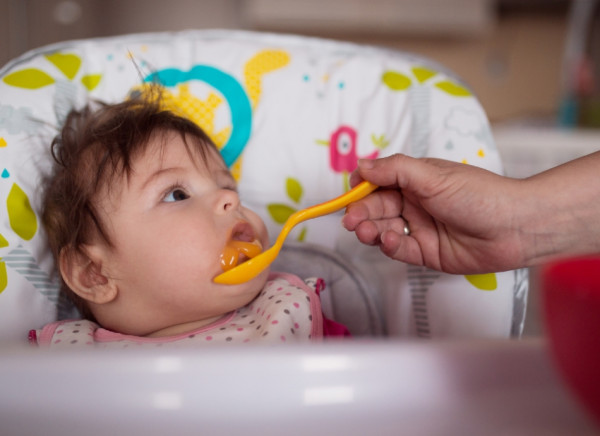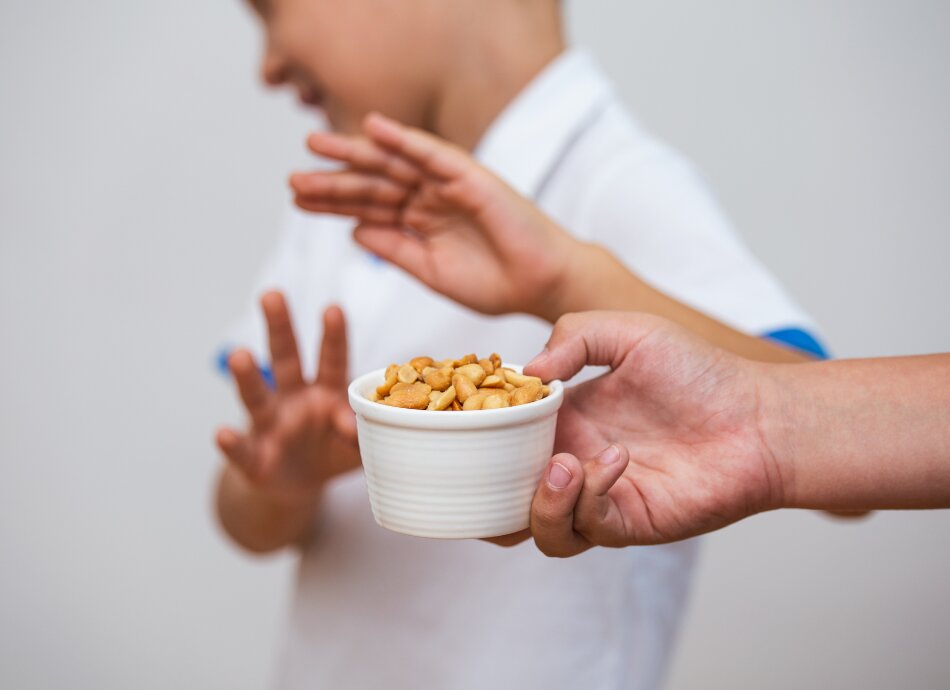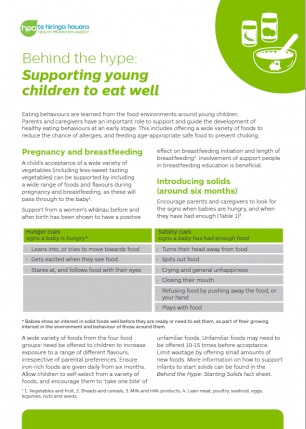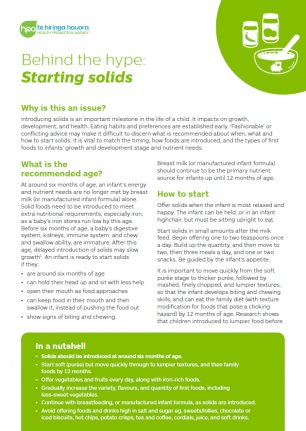1. Include allergenic foods in your diet
Pregnant and breastfeeding mothers should eat a healthy, balanced diet, including allergenic foods. Cutting allergenic foods out will not prevent food allergy in your infant. There is some evidence that omega-3 fatty acids (found in oily fish) during pregnancy and breastfeeding may help prevent eczema in early life, so try to include up to 3 serves of oily fish per week.
2. Breastfeed if you can
Breastfeeding has many health benefits for infants. If breastfeeding is not possible, or your baby is partially breastfed, a commercial infant formula should be used for the first 12 months of age.
3. Introduce solid food around 6 months of age
When your baby is ready, at around 6 months but not before 4 months, start to introduce a variety of solid foods, starting with iron-rich foods, while continuing breastfeeding.
4. Expose your child to a variety of foods
All infants should be given the common food allergens (peanut, tree nuts, cow’s milk, egg, wheat, soy, sesame, fish and shellfish), including smooth peanut butter/paste, cooked egg (not raw), dairy and wheat products within their first year of life, unless they are already allergic to the food. Introduce one food at a time every 2 to 3 days (give them foods the family usually eats).
It's important to be aware that children under the age of 5 years can choke very easily so don't give them small, hard foods they can choke on or inhale (breathe in). This includes nuts, large seeds, and chunks of foods (eg, apple, celery or carrot) and grapes and dried fruit. Smooth peanut butter and cooked or finely grated vegetables are fine. Read more about how to prepare foods for young tamariki to eat safely.(external link)
If your child already has an egg allergy or other food allergies or severe eczema, you should discuss how to do this with your doctor. If your child has severe eczema and/or egg allergy, regular peanut intake before 12 months of age could reduce the risk of developing peanut allergy.
5. Get medical advice
If your baby has an allergic reaction to a food, seek medical help. Keep the food out of the baby’s diet until you have discussed this with your GP and possibly been referred to a specialist.
Don't remove food groups such as dairy or wheat products from your child's diet unless your child has an immediate reaction to the food. If this happens, it is important to get specialist advice including from a dietitian.
Remember, your infant or child could develop a food allergy at any time, regardless of what steps you take. If this happens, stop the food and see your doctor.









